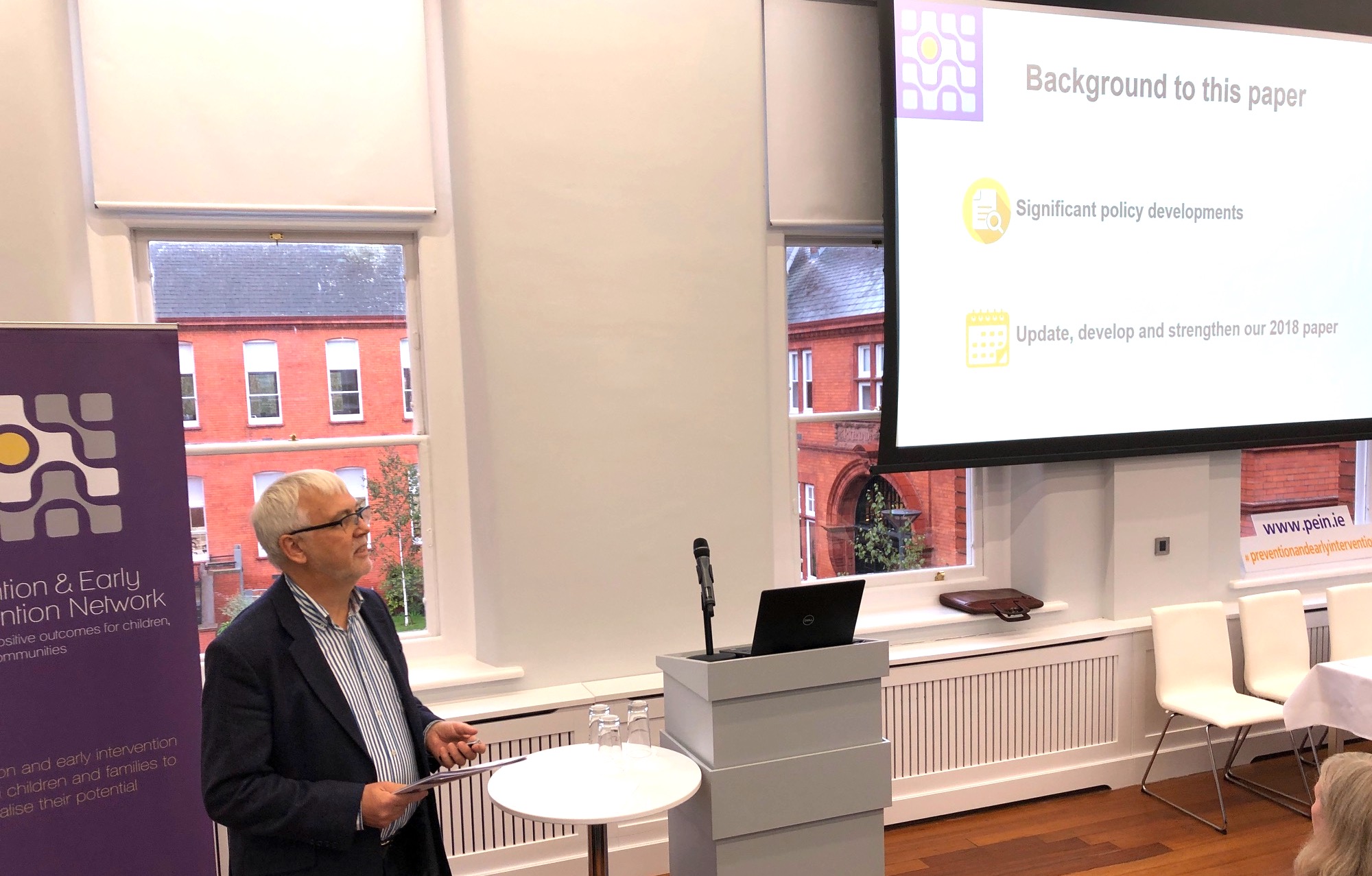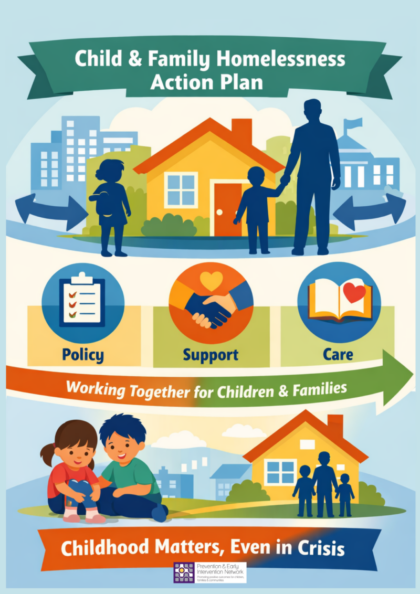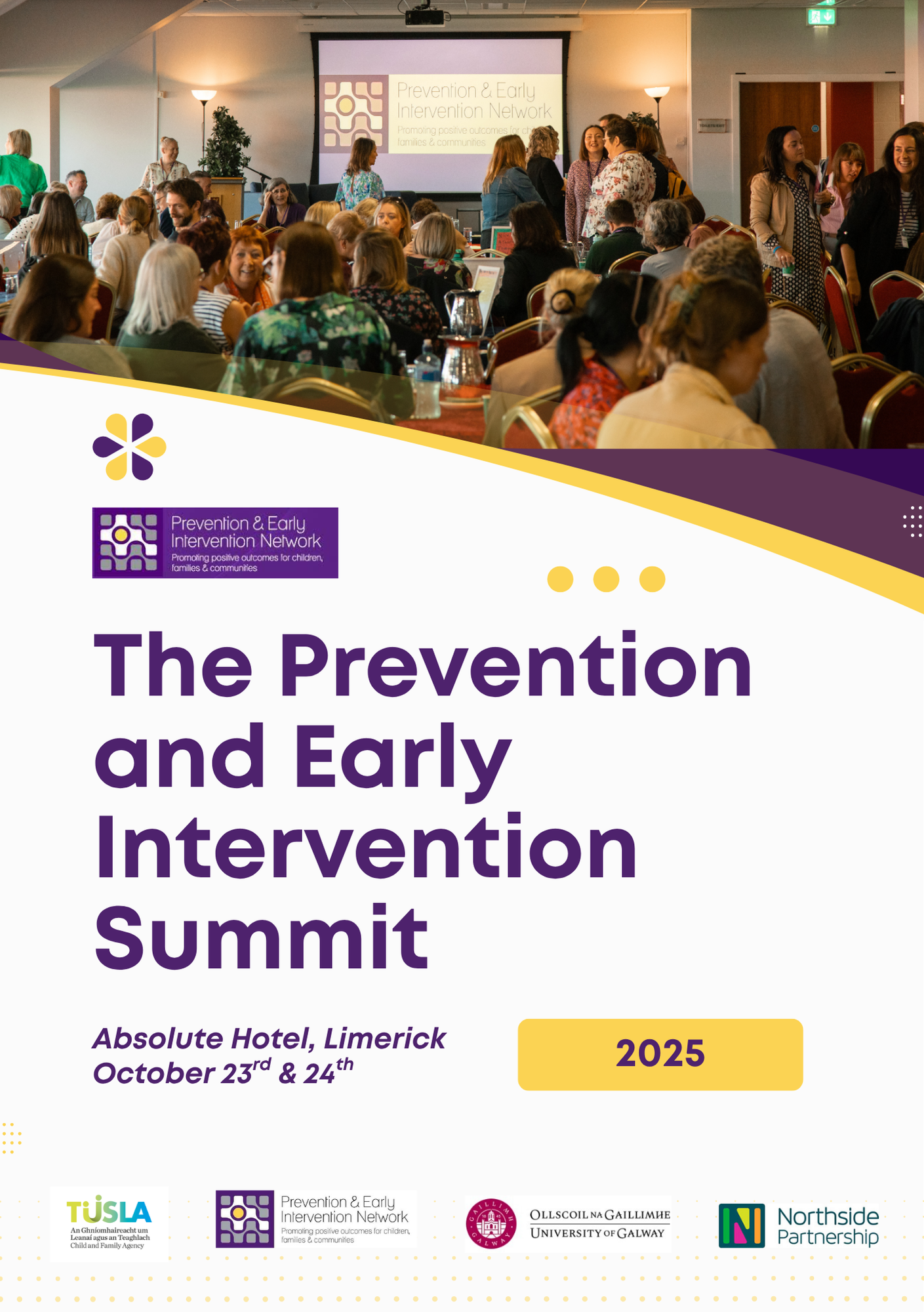
Prevention and early intervention should be at the forefront of all child health policies
A call for greater prevention and early intervention in all child health, social and educational services – including adopting a framework called ‘ACEs’ – was made at a seminar today.
The long-term social cost of Adverse Childhood Experiences (ACEs), and call for a greater focus on preventing them, were presented in a Policy Paper at a Prevention and Early Intervention Network (PEIN) seminar titled Every Childhood Lasts a Lifetime.
The Network includes 33 practice, advocacy and research organisations across Ireland working with children and families.
The event also included the launch of a Health Policy Paper calling for greater prevention and early intervention in child health services.
The Chair of PEIN’s ACEs Working Group Emma Reilly presented a Paper which called for a State backed working group to develop an ‘ACEs framework’ to shape all child services and supports – and reduce ACEs in the population.
Adverse Childhood Experiences (ACEs) are major events which occur in childhood that may lead to detrimental changes in brain development that have a serious effect on health and wellbeing across the lifespan. These experiences include physical abuse, sexual abuse, verbal abuse, emotional neglect and physical neglect, or growing up in households with serious dysfunction due to substance abuse, mental health issues, violence, or criminality.
It is internationally recognised that preventing ACEs should be a major public social and health priority, as it is estimated that 250 million children globally fail to reach their potential due to early adversity
Ms Reilly said: “Being informed of ACEs and the trauma they cause is critical to planning and providing any type of care across the lifespan – and is an approach that PEIN advocates as part of its message on prevention and early intervention.
“PEIN is calling for a whole of government approach to map the population to identify the extent and prevalence of ACEs – and in turn to focus universal and targeted supports on preventing these adversities happening, or to intervene quickly when they do.
“Research has shown that ACEs significantly impact on life-long health, such as diabetes and heart disease. Reducing the incidence and impact of ACEs can also seriously reduce demands on services.”
The event also included the launch of a Policy Paper on Health developed by PEIN. Chair of PEIN’s Health Working Group Francis Chance called on Government to recognise prevention and early intervention as the preferred approach to Child Health.
“PEIN is calling on the whole of Government to recognise the economic and social, as well as the health benefits of adopting a prevention and early intervention approach and to allocate resources accordingly, shifting the balance from treatment to prevention.
“In particular the Sláintecare Office should establish targets to shift reactive expenditure to prevention and early intervention on a phased basis. This should be undertaken in collaboration with Healthy Ireland, the Prevention and Early Intervention Unit in the Department of Public Expenditure and Reform and other relevant Government Departments and agencies.
“In re-orientating towards primary and community care we need an adequate, trained and dedicated Child Health Workforce, commencing with Child and Family Public Health Nurses. Furthermore, the role of parents needs to be recognised in all child health policies.”
Prevention is defined as ‘providing a protective layer of support to stop problems from arising in the first place or from getting worse’; early intervention is defined as ‘providing support at the earliest possible stages when problems occur’.
PEIN also highlighted that it has opened up its membership to new applicants as it believes that the prevention and early intervention is relevant to many more organisations working across the social sector. It will be writing to relevant organisations and can also be contacted through its website.
Both Policy Papers can be viewed and downloaded on the PEIN website at
www.pein.ie/2019/09/30/every-childhood-lasts-a-lifetime/
Further Information
Ronan Cavanagh, Cavanagh Communications: (086) 317 9731 / [email protected]
The Prevention and Early Intervention Network (PEIN) brings together 33 evidence-based practice, advocacy and research organisations seeking to improve outcomes for children, young people and families and to promote quality in prevention and early intervention.
continue reading
Related Posts
Government’s new housing plan ‘Delivering Homes, Building Communities’ is an integrated housing and homelessness plan. One of its measures includes […]
We are delighted to publish our delegate pack for the Prevention and Early Intervention Summit 2025 which takes place in […]
We are delighted to announce a Call for Submissions for the upcoming Prevention and Early Intervention Summit 2025, taking place this October in the Absolute Hotel, Limerick. […]






